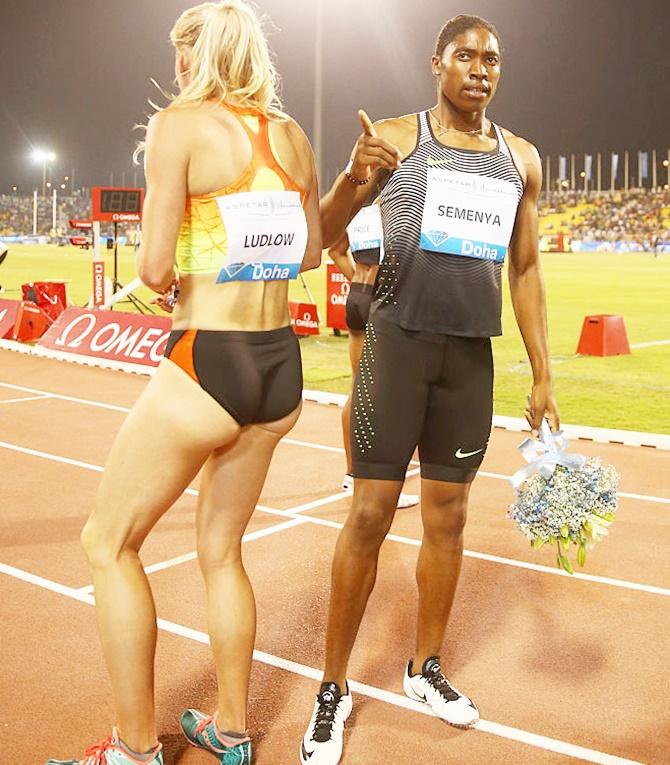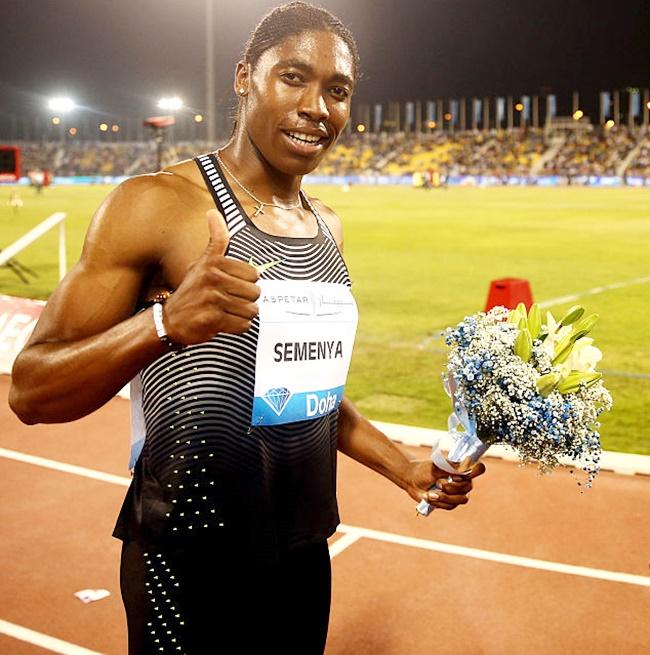Semenya’s body produces an abnormally high amount of testosterone which makes her more powerful than her rivals
Semenya has re-emerged as a dominant force

Caster Semenya is seen as a near-certainty for Olympic gold on the track in Rio and her expected success in the 800 metres looks just as sure to bring up further examination of her running credentials.
The South African has dominated the women's 800m in the build-up to the Games and is being touted for a possible world record, but she will go on to the track with a distinct advantage that many feel is unfair.
Semenya, who was briefly suspended by the International Association of Athletics Federation (IAAF) and underwent gender testing after winning an unexpected world title as a teenager in 2009, is thought to be hyperandrogenous. That means her body produces an abnormally high amount of testosterone which makes her more powerful than her rivals.
However, IAAF rules that limit the amount of naturally occurring functional testosterone for female athletes were suspended last year, removing restrictions that might have affected Semenya, and she has since re-emerged as a dominant force.
Her times have come down drastically and her form since the start of this season has been all-conquering. At the South Africa championships in April, the 25-year-old completed an unprecedented 400, 800 and 1500m hat-trick in the same day and she is unbeaten on the Diamond League circuit.
Prior to the decision from the Court of Arbitration in Sport that the IAAF had insufficient evidence to back up the belief that excessively high levels of natural testosterone produced exceptional performances by women, it was widely speculated Semenya's form had dipped because of medication to lower her levels.

But her coach Jean Vester insists that a new lease of life for Semenya, who married her girlfriend last year, is the result of her mentally getting over the controversy.
"She's stronger now. When it all happened in 2009 she was a teenager and that's a tough time in anyone's life, the transition from a school kid to the adult world. Eventually it got to her," he said.
Although public criticism has been limited to date, however, few will be convinced her re-found form is just an adjusted mindset, especially when her powerful frame stands out so markedly from her opponents.
"I fear that when we talk about it in terms of fully expecting no other result than Caster Semenya to win that 800m (at the Olympics), then it's no longer sport and it's no longer an open race," former British world champion Paula Radcliffe said while commentating for the BBC at last month's London Diamond League meeting.
Another former world champion, Ireland's Sonia O'Sullivan, wrote in her newspaper column: "It's through no fault of their own that these athletes have been born with more male genes and hormones than female; but this doesn't mean they can simply be classified as women and allowed to take part in women's events."
In South Africa there has been a fiercely protective attitude towards Semenya since her test results in 2009 were leaked to an Australian newspapers despite IAAF promises of confidentiality.
Australia's Daily Telegraph quoted the test report as saying Semenya has internal testes but no ovaries or womb, and the IAAF secretary general Pierre Weiss added at the time: "She is a woman, but maybe not 100 per cent".
South African sports minister Fikile Mbalula said South Africans would rally around Semenya in the face of probable criticism in Rio.
"Anything that seeks to undermine the standing of Caster I think is anti human rights and not worth promotion," he said.
"For us it is not an issue," added Athletics South Africa president Aleck Skhosana on any potential fallout.
"There is nothing to worry about."












